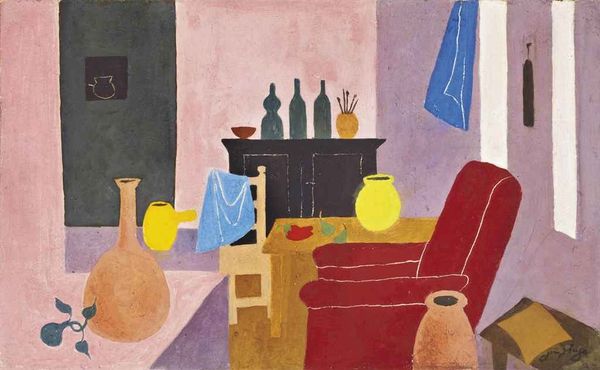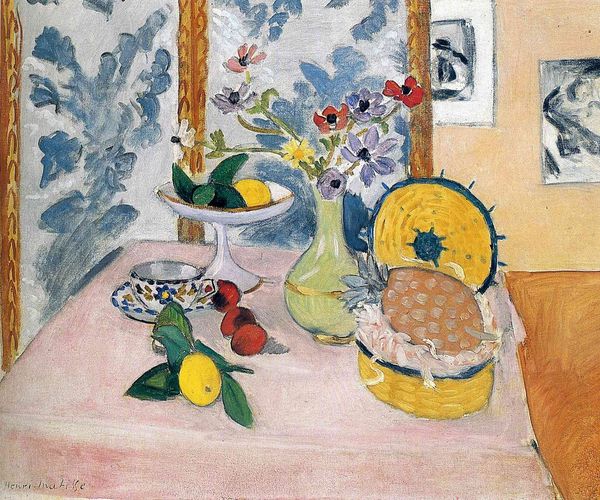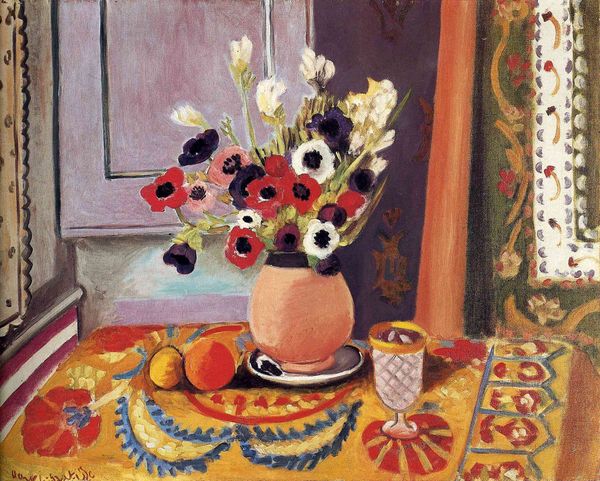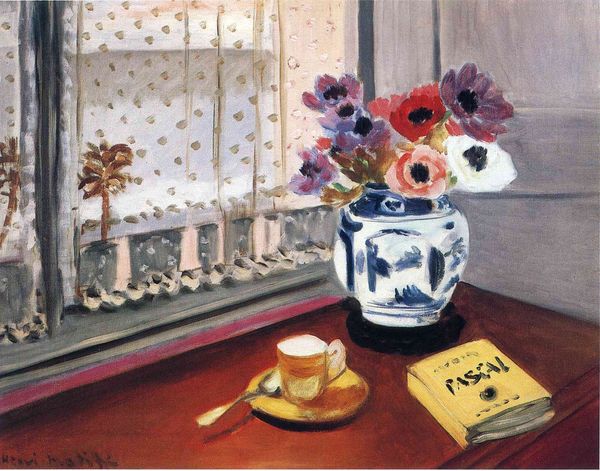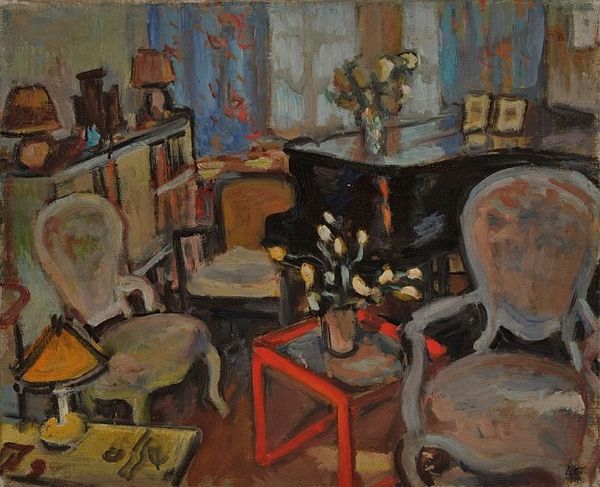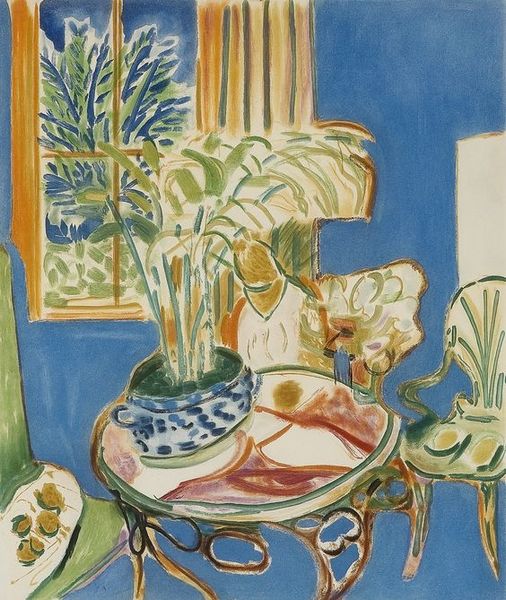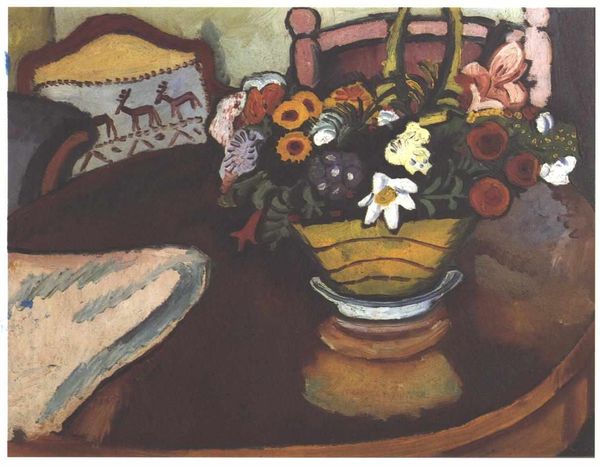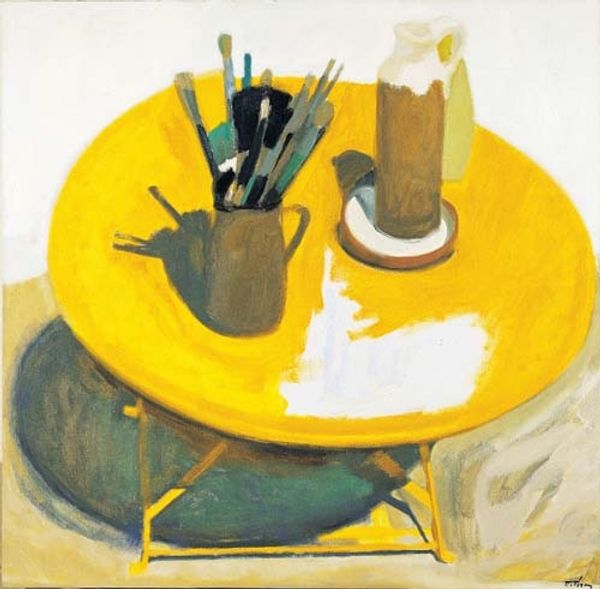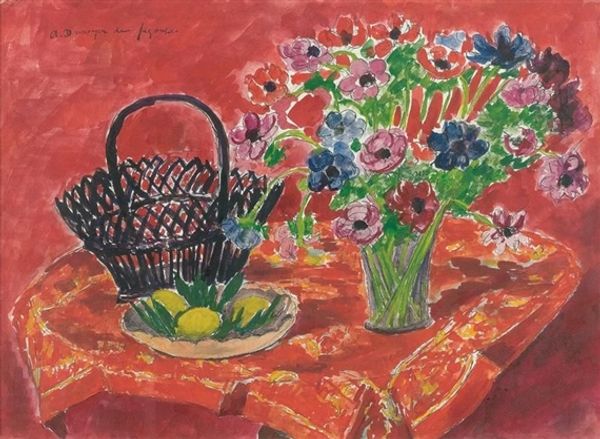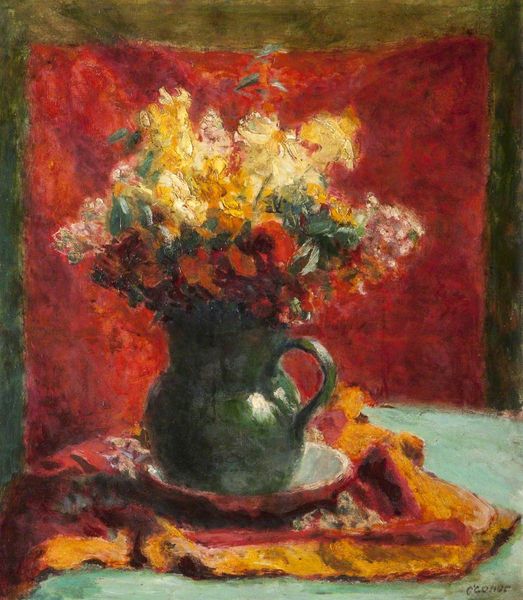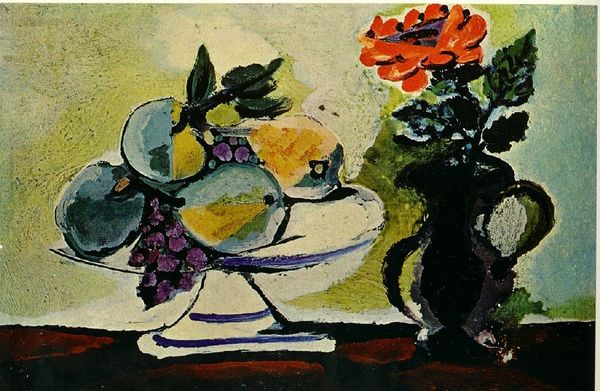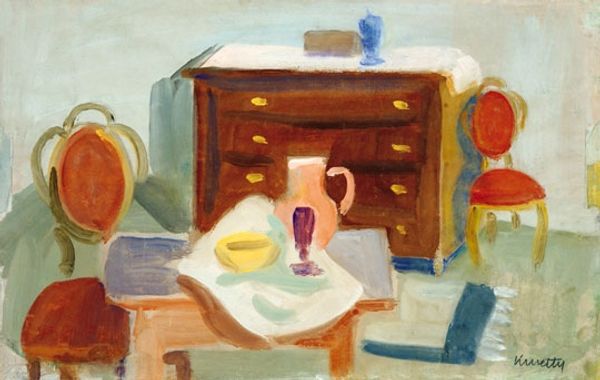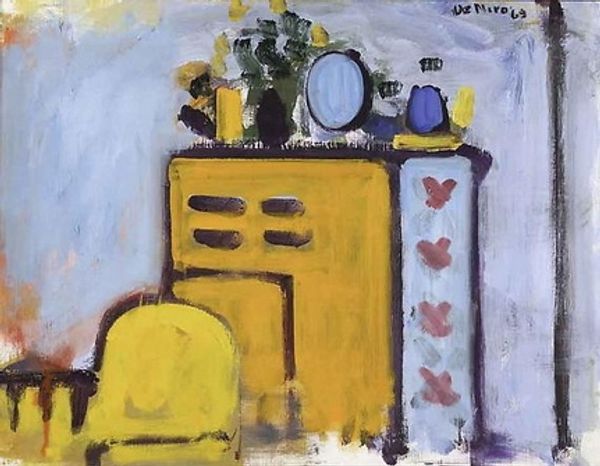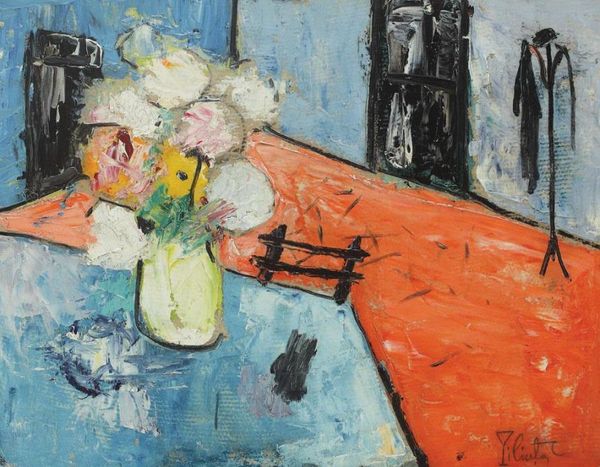
#
water colours
#
egg art
#
handmade artwork painting
#
naive art
#
modern period home
#
painting art
#
watercolour illustration
#
cartoon carciture
#
cartoon theme
#
watercolor
Copyright: Jean Hugo,Fair Use
Curator: Jean Hugo’s "Nature morte dans la grande salle (au Rivier)," painted in 1979, is a wonderfully evocative still life, rendered with watercolours in his signature naive style. Editor: It's like stepping into a daydream, isn't it? The colors are so muted and dreamy, everything's just slightly off-kilter, as if seen through slightly tipsy eyes. Curator: Absolutely. The charm here really resides in the simplified forms. Consider how Hugo reduces everyday objects - the lemons, the teapot, even the flowers themselves - to their basic shapes, emphasizing their inherent geometry. This reductive approach encourages a deeper examination of their materiality and form. Editor: I’m captivated by the wonky perspective. Is that a window over there? And a shadow puppet theatre lamp on the right? This evokes memories from my grandmother's old house. I can almost smell the lemon. Curator: Interesting. And from a materialist perspective, it’s worth considering how this perceived "naive" aesthetic was achieved. Hugo, although coming from a privileged background, engages with what could be termed 'outsider art,' using watercolour - traditionally a more 'accessible' medium - to democratize his artistic practice. There is the rejection of high art, a choice of subject, or a social commentary present. Editor: "Democratize." Well, that's a word that makes this painting suddenly more political! I appreciate seeing it from this point of view. I'm really getting the sense of what everyday life means in 1979 for someone... It feels a little bit melancholic somehow... the simple pleasures, you know? Curator: Indeed. He creates intimacy between viewer, subject and social context. We can understand a moment within time. The presence of everyday tools tells of a narrative we may all connect with on some level. Editor: Thinking about those tools as materials to achieve… that really puts me in the room! All in all, Jean Hugo offers a very unique point of view for this day, wouldn’t you agree? Curator: I completely agree, it prompts us to rethink how labor and domesticity intersect with our understanding of art and life. Editor: Yes. Art has this power and "Nature morte" succeeds with such a wonderful naive tone.
Comments
No comments
Be the first to comment and join the conversation on the ultimate creative platform.
